- Home
- P. T. Deutermann
The Nugget Page 8
The Nugget Read online
Page 8
“We missed one,” he announced. “Intel says Hiryu was out there. We’ll have to go back, and pretty quick, because—”
At that moment the Big E began leaning into a hard turn, sharp enough to put any unsecured aircraft out on the flight deck in danger of rolling off. That was followed by the GQ alarm, and the announcement that Jap planes were attacking Yorktown, which was about ten miles away from us to the south. Most of us went up on deck and sat in the starboard catwalk. Enterprise’s AA batteries all trained out to make sure that any Japs who saw us would get a hot reception. The sky over Yorktown darkened with AA bursts, interspersed with the fiery trails of dying Jap planes as they arced into the sea, pursued in some cases right down to the crash by Yorktown’s Hellcats. Even so we saw bomb hits on the wildly maneuvering carrier, followed eventually by the white waterspouts of torpedo hits. Unlike our torpedoes, Jap fish worked, as all of us knew. Yorktown began to slow way down, and we could begin to see more and more of her flight deck as she listed.
Big E spit off six fighters to join the ones we already had up, but the Japs seemed not to know we were there. Perhaps it was because they were busy killing Yorktown. In any event, once the raid was over, the ship secured from GQ and we were ordered to get chow and then prepare for an afternoon strike. If there’d been any doubt that Hiryu was out there, she’d clarified the situation for all to see. Yorktown was badly hurt, and soon some of her surviving aircraft started landing on Enterprise. I didn’t know where Hornet was, but the admirals had dispersed the formation just in case the surviving Jap flattop did seek revenge.
The wardroom was not the scene of jubilation I’d experienced in the ready room. There were far too many empty seats and the pilots were eating with the grim determination that preceded a dangerous mission. It was more like we were refueling than eating lunch. A final coffee and a cigarette, one last head call, and then back to the work of killing carriers. Both Enterprise and Hornet would be sending strikes, but there’d be no waiting to gather up a coordinated strike this time. Each air group was directed to launch as soon as possible and get bombers over the one surviving Jap carrier before the Japs figured out they were facing not one but three American carriers and ran for home. We learned that there would be no torpedo bombers going on this one, because there weren’t any left on Yorktown or Enterprise. Hornet’s torpedo bombers had missed the show this morning when they couldn’t find the Jap fleet. Low on fuel like everyone else, they had opted to return to the ship rather than start a search, a decision that certainly had saved their lives. By 1330, our first planes were going off the bow. The air group’s fighters were being kept back in anticipation of yet another Hiryu strike. Who could blame the Hiryu?
Bombing Six launched around 1400, some 150 miles from where we thought Hiryu ought to be. The orders were clear: as soon as a squadron, or what was left of it, was airborne, they were to head for the target. As I looked around at our somewhat tattered formation, I realized Bombing Six and Scouting Six had sustained much heavier losses than I had thought. I wondered at the time why we weren’t waiting for the rest of our planes. Then I figured it out: there weren’t any.
“I didn’t know it was that bad,” I told Rooster as we climbed to 15,000 feet.
“Lotta scuttlebutt going around, Boss. ’Specially about guys running out of gas and going in the drink. Mister Franklin went in before we even got there.”
“Damn,” I said. “I didn’t know that.”
We flew on for a while, thinking our thoughts. Three Jap carriers destroyed. Had to be, with fires that big. They might still be afloat, but they’d be nothing but burned-out hulks. Maybe we could get a fourth this afternoon. But at what cost? It had been a big celebration back in the ready room, but now I was embarrassed to think that I hadn’t given a single thought to the crews we’d lost. Man, I had a lot to learn.
“Smoke,” somebody said over the tactical net. “Three three zero.”
“Angels twenty,” the skipper ordered. We followed him up into the thin air. Bombing country. Rooster and I went through our attack checklist. I felt under my seat for the arming handle. It was right where it was supposed to be. We were carrying the standard ship-buster centerline, with the two firebombs, one on each wing. The theory was that the big boy would tear the target open and rupture the fuel lines rising to the flight deck. Then the little boys would light it up. We finally could see two columns of black smoke down there on the silver sea, surrounded by smaller dots. Should have been three, I thought, and then realized one of them had probably gone down. But where was Number Four? We hadn’t seen her this morning, so she must be somewhere distant from the Kaga-Akagi-Soryu formation. And then we looked down and saw a line formation of planes coming down from the north, headed towards our carrier formation. They were probably 6,000 feet below us. Hiryu’s last stand?
The skipper came up on our Bombing Six tactical net. “She’s north of here, somewhere. I want to fly northwest by north to get up-sun, and then we’ll kill her. Those bastards down there won’t have anywhere to land. I’ll send out the heads-up. Come to three three zero.”
Normally we would have been formed up in echelons of divisions, two or three aircraft in each division, with rigid control on where you were supposed to keep station. Not this afternoon. Bombing Six and Scouting Six were basically intermingled, bombers all. We were flying in the flattest echelon I’d ever seen, two half-strength squadrons, mindful of our dead, what these Japs had done at Pearl Harbor, and intent on murder.
It took another fifteen minutes before one of the planes called target in sight, zero one zero. Off to our right, one big and a lot of smaller white lines in the ocean, heading southeast, following their planes so that they’d have a shorter distance to fly to get home.
Not today, you sonsabitches, I thought. Ain’t gonna be no home for you.
“Goddamn right,” Rooster said. Apparently I’d said it out loud.
“Arm the fun,” the skipper ordered. “And follow me.”
I shot my ephedrine capsule, rolled in, and followed the skipper and two more planes down. Hard roll to the left, then pitch the nose down, so that the centrifugal forces pushed fuel towards the engine and not away from it. Split the flaps to get stability as the airspeed ramped up, and then reach down and pull the arming handle. I was the fourth plane down so I got to see what the first three accomplished before it was my turn. First two hit close aboard, close enough to have cracked some seams on her underwater hull. Number three, a pilot from Scouting Six, flew through an alarming cone of increasing AA fire, planted a 500-pounder on the back of her flight deck in the midst of a dozen parked planes, and then knifed straight into the ocean on the carrier’s starboard quarter.
I swore at the sight but then it was my turn. That cone of fire was swinging my way about as fast as I was dropping. Hand it to those Japs: here came a possible 1,000-pound bomb aimed right at them but not a one of them was running for cover. Suppressed by the rising whine of my dive were clacks and small bangs as some of that fire hit my plane. Hiryu’s after end was burning pretty well by then so I touched the stick left just a bit and let baby go at 2,500 feet. Then turn and pull, pull, pull as more of those bullets smacked my wings and fuselage. I chose to fly straight out and away from the carrier’s port bow, not jinking hardly at all, on the theory that distance from all that AA fire was my friend. Doing that worked fine unless there were some Zeros waiting for you at the bottom of the roller coaster.
Then Rooster, facing aft, got a look at Hiryu and treated me to a truly enthusiastic yee-haw. Now level over the bright whitecaps, I could begin a spiraling turn back up to altitude. As I did, Lieutenant Quantrill planted a big boy smack in the middle of the Hiryu’s flight deck. It punched what from my angle and altitude looked like a small wedge-shaped hole in the flight deck, and then there were two huge explosions jetting out her hangar bay side doors under the flight deck, followed by a huge hump bulging up in the flight deck itself. But what got my attention was what my fire-baby
had done for us. I’d hit her in the forward one-third of the flight deck and the resulting blast had peeled her flight deck and the forward elevator smack up against her island like a ripped-open can of stewed tomatoes.
“Break it off, break it off,” the skipper called. There was no longer any point in wasting bombs on the clearly wrecked carrier, which was now subsiding out of sight beneath the huge clouds of smoke and flames. The skipper ordered anyone else with bombs to go after a battleship that was following astern of the carrier, still shooting every one of her AA guns in our general direction. Then the Hornet air group arrived, and conducted its own strike against Hiryu. I shook my head. What would they be aiming at, I wondered? You could see her rapidly diminishing wake, but that was about it. What you could see were Hiryu’s remaining aircraft, milling about the disaster like wasps whose paper ball nest has been torn open, which was just about what had happened.
Nothing much was accomplished against the battleship. She was escorted by some cruisers and destroyers and their combined AA curtain almost obscured the heavy. Five pilots dropped, but prudently, from about 6,000 feet, and mostly killed a lot of fish. There were two heavy cruisers trailing oil, so maybe someone got to them in all the excitement. More of the Hornet’s air group arrived. Having missed the morning’s festivities, they brought greater numbers than our badly depleted group, so our CAG ordered us to leave them to it. We turned out to head back to Mother Enterprise.
We settled out at 12,000 feet and counted heads while dealing with the adrenaline crash and its immediate result: a great wave of weariness flooding through our veins. I was aware that Rooster was babbling away on the intercom about what our bomb had done, as if none of the other hits had counted, but I almost couldn’t make out his words. I shook myself out of it, did an instrument scan, and then sucked down some water from my Thermos. The water helped. Then something on the instrument scan jarred me even more awake.
“Rooster,” I called. “We losing fuel?”
It took a moment for him to inspect the wings. “Uh, yes, sir, Boss, I think we are. Right wing’s weepin’. It ain’t too bad, but…”
My master fuel gauge showed enough to get back to the carrier, but obviously some of that AA fire had done the Japs’ bidding. The 3A model of the SBD had self-sealing fuel tanks, but if you put enough holes in the rubber lining, you’d begin to lose fuel, which showed up as a fine white mist contrail behind the affected wing. I reported my problem to the skipper, who calmly asked if I could make it back. I told him I thought I could. Okay, he said. That was all I needed to hear, because it told me he’d set me up to be one of the first ones back aboard. I let Rooster know that “they” knew about our problem, but I watched the fuel gauge all the way back.
We were fourth to land, not first, because there were three planes ahead of me who had bigger problems. One of them ditched alongside a destroyer, which quickly plucked the crew out of the sea. Our destroyers had that business down to a fine art by now and it was always a great comfort to know one was already coming to get you if you had to make a water landing. Landing itself was a bit hairy for once, because there were a lot more airplanes parked up front than usual which meant a lot less landing room. We later found out that Yorktown had been abandoned for fear she’d blow up like the Lex had. All her surviving planes had been dispersed among our two remaining decks—Enterprise and Hornet. The two squadron skippers went topside to tell the admiral that Hiryu, while not actually sunk, had been wrecked and would probably sink that night.
The rest of us went to the ready room and dropped, exhausted, into our assigned chairs. The squadron doctor came around amid the babble, offering a shot of bourbon to each pilot. This time I grabbed it eagerly and threw it down. He tipped the bottle to ask if I wanted a heeltap but I shook my head. I closed my eyes and let the whiskey and the buzz of excited chatter do its work, trying to ignore the poignant fact that, of the four nugget chairs positioned right up front in the briefing room, mine was the only one occupied. My fellow new guys were now just part of the wreckage and oil slicks floating out west somewhere, where four aircraft carriers and literally thousands of Japanese sailors had met their doom in the cold waters above Midway Island.
Four carriers. Great God.
Four carriers and all their aircraft. Had to be hundreds of them. No dispersing their surviving airplanes to the remaining decks, because there weren’t any remaining decks. Yes, we’d apparently lost Yorktown, but most of her people and planes were still with us, and there was nothing the Japs could do about that now. Remember Pearl Harbor, you sonsabitches, I muttered, but it didn’t seem to have the kick it used to. There was a noise in the ready room. The skipper was back. I sat back up and tried to look enthusiastic, but the scale of the past two days was overwhelming. Every time I closed my eyes I saw that image of Hiryu’s flight deck curled up against her bridge windows. Then I heard people dropping into their seats and the room going quiet.
“We’re withdrawing from the area,” the skipper announced. “The admiral said that because the Japs still had battleships and cruisers out there, he thinks they’ll come for us in the night if we make the mistake of hanging around. One of their battlewagons could sink both Hornet and Enterprise in five minutes.”
“What about the Yorktown?” a voice behind me asked.
“They’ve put a damage control team back aboard and taken her under tow. She swallowed two torpedoes and a couple of bombs. If the Japs also withdraw, we might get her back to Pearl, but at least most of the air group and ship’s company are safe for the moment. The admiral wants another strike tomorrow morning to make sure somebody’s not trying to tow Hiryu out of the area. The other three have been confirmed sunk. Gentlemen, we have achieved a fantastic victory over the Japanese navy. Two of those carriers were part of the sneak attack on Pearl. The admiral says this will put them on the strategic defensive, which will give us time to rebuild our fleet and then really take the war to them for a change.”
Nobody said anything. I think most of us were still a bit numb and not much interested in high strategy or taking the war anywhere just then. The skipper leaned over the podium. He was pretty damn tired, too.
“It’s not like we got a free ride,” he said with a sigh. “Just look around.”
None of us looked around. We didn’t have to. I wondered if any of the other guys were, like me, feeling just a little bit guilty that we were still alive while so many were … For some reason, I spoke up. Nuggets weren’t expected to say anything unless spoken to, but I wanted to say something.
“Nugget wants to speak,” the skipper announced.
“Today,” I said, “when I was diving on Hiryu, I could see the Jap AA gunners running all over the flight deck trying to get to their stations. When they started up, it was damn clear that they could see me, too. Think about it: here came a dive bomber with a serious bomb who probably wasn’t going to miss, and yet I didn’t see a single one of them running for cover or diving down into the catwalks. Today was goddamned wonderful: four carriers. But I think this war’s gonna take a while.”
There was silence in the ready room for about ten seconds. Then the skipper nodded. “Nugget’s right,” he said. “Amazing as that is.”
There was general laughter. Picking on nuggets was still fun. Then the skipper continued. “The Japanese got cocky here at Midway. I hate to think of what they’ll be like when they get backed into a corner.” Then he looked up and beamed. “By the way, I need to congratulate the nugget here for making two direct hits on two different carriers. In that regard…”
He stopped and nodded to Yeoman Sykes, who went to the ready room door and admitted two flight deck aviation boatswain mates. They wore the shirts of the arresting gear crew, and between them they were carrying a tailhook from an SBD. They stood a little nervously in front of the hollow-eyed pilots in their chairs, many of whom still looked like they wanted to kill something. The skipper went over and removed something shiny from the ring at the top of the hook w
here the bolt holding it to the tail went through. He held it up and wrinkled his nose.
“This is the head of a flying fish,” he announced. “See the little wing fins on the side? Yesterday when Mister Steele here got back aboard, the deck guys found the fish embedded in the base of the hook. Apparently Mister Steele had a close encounter with the Pacific Ocean on pullout, yes, Mister Steele?”
I remembered that bump, and nodded sheepishly.
“This was just after he’d put a crowd-pleaser into Kaga that turned her into a moving volcano. Therefore I hereby decree that Bombing Six is now a nugget-free zone, and that ‘Fish’ Steele is hereby officially named.”
I started laughing. All the pilots had nicknames, or call-names as they were usually referred to. You never got to choose your call-name. Something had to happen that inspired the rest of the squadron, led by the skipper, to anoint you with your forever name. If it arose from something embarrassing, that was even better. I had hooked a fish by pulling out too low. Fish it was.
I was able to brush over the other reason we were a nugget-free zone in the general hilarity, but I’d noticed something. We did dangerous work. I remembered reading about Ulysses Grant calmly asking Sherman after the battle of Shiloh: What was the butcher’s bill? There were going to be casualties. We could mourn, but on our own time. Our professional face required that we get up the next morning and go back out if we had to as if nothing significant had happened.

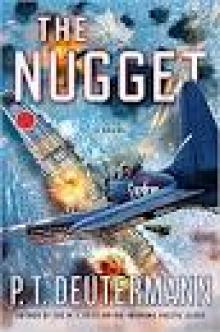 The Nugget
The Nugget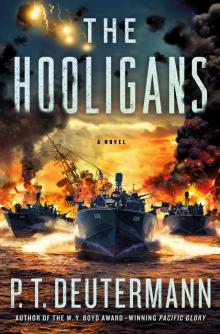 The Hooligans
The Hooligans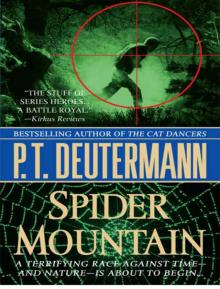 SPIDER MOUNTAIN
SPIDER MOUNTAIN![Cold Frame [retail] Read online](http://i1.bookreadfree.com/i/03/19/cold_frame_retail_preview.jpg) Cold Frame [retail]
Cold Frame [retail] Sweepers
Sweepers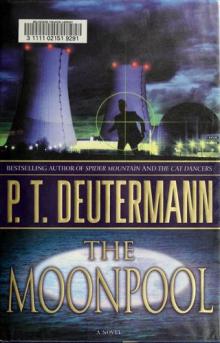 Cam - 03 - The Moonpool
Cam - 03 - The Moonpool Trial by Fire
Trial by Fire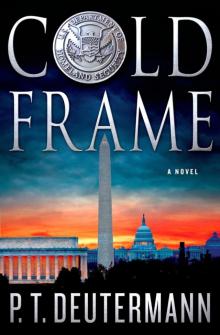 Cold Frame
Cold Frame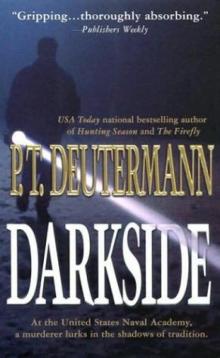 Darkside
Darkside Cam - 04 - Nightwalkers
Cam - 04 - Nightwalkers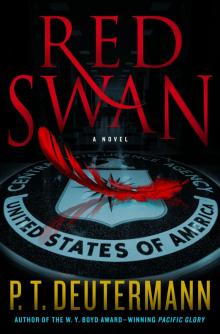 Red Swan
Red Swan The Commodore
The Commodore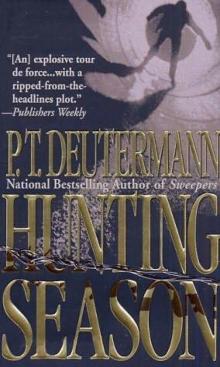 Hunting Season
Hunting Season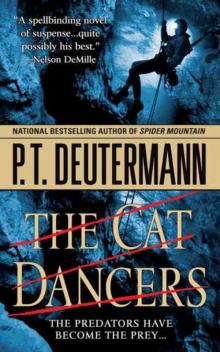 The Cat Dancers
The Cat Dancers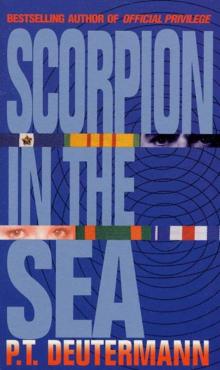 Scorpion in the Sea
Scorpion in the Sea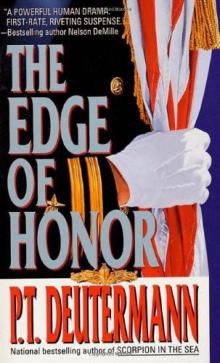 The Edge of Honor
The Edge of Honor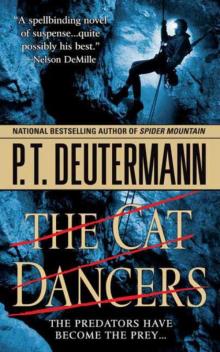 The Cat Dancers cr-1
The Cat Dancers cr-1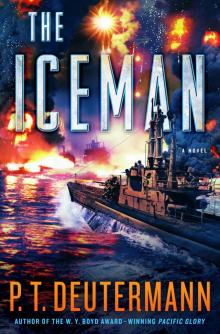 The Iceman
The Iceman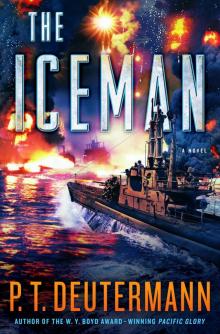 The Iceman_A Novel
The Iceman_A Novel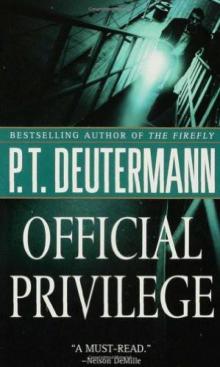 Official Privilege
Official Privilege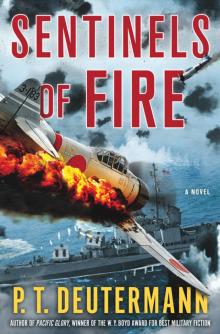 Sentinels of Fire
Sentinels of Fire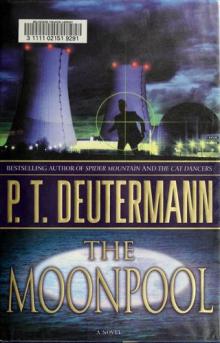 The Moonpool cr-3
The Moonpool cr-3 Nightwalkers cr-4
Nightwalkers cr-4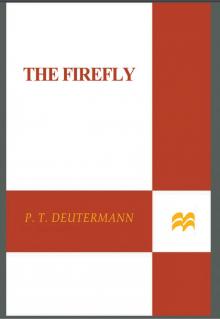 The Firefly
The Firefly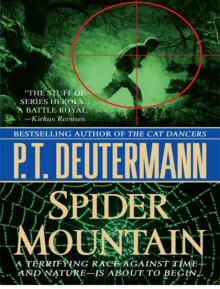 Spider mountain cr-2
Spider mountain cr-2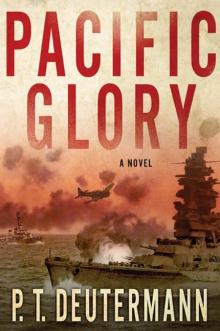 Pacific Glory
Pacific Glory The Last Man
The Last Man